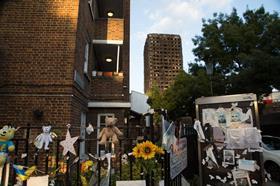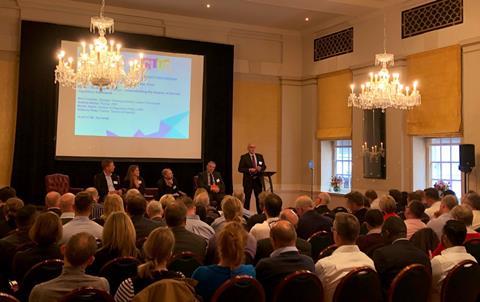Emergency services after Grenfell need to know more about a building’s construction

A fire safety expert has urged the construction industry to spell out in greater detail the type of materials used in buildings to help emergency services deal with dangerous situations more effectively.
Two years on from the Grenfell Tower fire in which 72 residents lost their lives Nick Coombe, strategic technical advisor for the London Fire Brigade, told a Building Live Club conference looking at how the industry might implement the recommendations of the Hackitt review that firefighters needed detailed information when they turned up to deal with a fire.
But often the data on materials used in a building’s construction was not available, Coombe said. “They [firefighters] ask ‘how can the industry not know what goes into a building?’. If you look at the aviation authorities, they know every bolt and screw that goes into an aeroplane. As an industry, the construction sector has got to get better at this sort of thing.”

Coombe conceded such attention to detail would inevitably drive up costs but added: “People have got to be kept safe.”
Jim Martin, executive chairman of quantity surveyor Martin Arnold, told the conference he had felt a sense of personal responsibility when he watched footage of the Grenfell fire on the morning of 14 June 2017. “I knew then that I needed to change and the industry needed to change if we’re going to do things differently and avoid anything like this happening again.”
Martin said the Grenfell fire was “the tip of the iceberg. This goes deeper than the wrong sort of cladding on the outside of a tower block”. He also blasted what he called a “woeful lack of record-keeping in the industry and that has to change dramatically”.
And Rebecca Rees, a partner with law firm Trowers & Hamlins, said the industry could not afford to be complacent about the sea-change required in all areas of business. “Early collaboration on a project is key and going forward with contractors it’s going to be inevitable. And if we are serious about fire safety we need to prohibit lowest price tendering for high-rise buildings. The whole tendering process needs a re-think.”
Rees also warned the industry must not let slip the opportunity to change its culture – as urged by the Hackitt review and its 53 recommendations. “This cannot be a box-ticking exercise. The industry needs to do a lot of soul-searching.
“We need to ask ourselves are we really competent? A huge cultural shift is required. We have to make sure this doesn’t become a bloody big sticking plaster applied to a broken sector.”
More details of the Building Live Club event ‘Implementing the Hackitt review’ will be published next week. You can find information on all the Building Live Club events here



























No comments yet